#Indian Cartoon
Note
What is your favourite cartoon show
My favourite cartoon is Pinaki and Happy the bhoot bandhus (Ghost relatives). It's made in my country (India) there are no romantic events, just family and friendship. So I love it and I'm obsessed.

Since you asked I'd like to speak a few words. It's about a ghost family. They adopt a human child and take care of him, sends him to school and has a lot of comedy especially because Happy (the cool looking dude) is whacky. This is Happy in skeleton form and human form. The ghosts can take human appearance when they want.


They live among humans and interact with them but if someone sneezes or if they contact water they go back to being skeleton till they are dry. It's amazing. They have an intelligent puppy that makes gadgets. His name is Gappu. I love him

The couple that adopts Pinaki is Mr. and Mrs. Suri.

Pinaki's ghost brother Happy was also adopted by them. Pinaki has two best friends in class, Dimpy and Tinku. Dimpy is a girl. He has a rival too named Santhu.
I love the show and its themes like family, friendship, supernatural. Pinaki being a human and living with a ghost family, seeing weird stuff ghosts do daily and habitually, that's so interesting and funny.
#pinaki and happy#pinaki and happy the bhoot bandhus#indian#indian animation#desi blog#desiblr#desiblogger#Indian cartoon#desi
56 notes
·
View notes
Text

Chulbuli rescued a cat 🖌️
3 notes
·
View notes
Text
desi people WAKE UP-
they're making a chhota bheem live action movie-
#chhota bheem#indian cartoon#desi#desiblr#desi tumblr#just desi things#they're adapting the curse of damyaan#i'll have to call my cousin to know what exactly happened in that movie#because i remember none of the plot apart from that it had snakes and magic and a lost kingdom#i have no idea what to feel about this#nonetheless i watched the teaser with an intrigued + confused grin
17 notes
·
View notes
Text
Guys, Im sorry but what the FUCK is this

#desi#desi tag#hindi#indian cartoon#◊ desi tag !#NO CUZ WHY IS THIS A TYPICAL INDIAN DRAMA STORY???#SPARE??? THE ??? KIDS???#▣ random posts#kyuzu 👺#jade 💚
7 notes
·
View notes
Text


I’m sorry but why are Indian people portrayed like this?
3 notes
·
View notes
Text

#comic#comics#cartoons#cartoon#memes#meme#anti donald trump#anti joe biden#the nra is a terrorist organization#fuck the nra#nra#national rifle association#usa news#usa is a terrorist state#usa politics#usa#american indian#american#america#maga morons#fuck maga#magats#maga#united states#unitedstateofamerica#unitedsnakes#amerika#amerikkka#anti religion#church
136 notes
·
View notes
Text
Amphibiuary 2024 Day 3: Round

I didn't have much time to work on the challenge today, so this is simply a delightfully spherical Purple/Pignose frog (yes I am now reading the prompt list correctly fnfnf)
#amphibiuary2024#my art#artists on tumblr#frogs#original work#purple frog#indian purple frog#pignose frog#round#traditional art#traditional illustration#cartoon#cute#cartoon illustration#promarkers
108 notes
·
View notes
Text
gali gali sim sim - 2006
peak nostalgia.

#gali gali sim sim#indian shows#indian cartoons#hindi shows#hindi#hindi cartoon#desi blog#desi#india#desiblr#indian#desi blr#desi tag#desi tumblr#desi thoughts#desi teen#desi things#desi childhood#desi ass#desi core#desi culture#desi family#desi girl#desi household#desi kids#indian kids
28 notes
·
View notes
Text

I can't be the only Indian kid who has watched this show...
#desiblr#just desi things#cartoon#cartoon network#nostalgia#desi#indian shows#being desi#desi tumblr#desi teen
37 notes
·
View notes
Text
I think I will start making Chhota Bheem incorrect quotes.
Because nobody else does...
#seriously i need more people on the chhota bheem fandom#where are all the people who watched chhota bheem as a kid??#do you not like it anymore?#or do you guys just don't wanna have a fully functioning fandom just because its a cartoon?#bheem bheem bheem chhota bheem chhota bheem#chhota bheem#desi people#desi teen#desi shit posting#desi humor#desi indian#desi tumblr#desi tag#being desi#desi life#desi#chhota bheem incorrect quotes
32 notes
·
View notes
Text
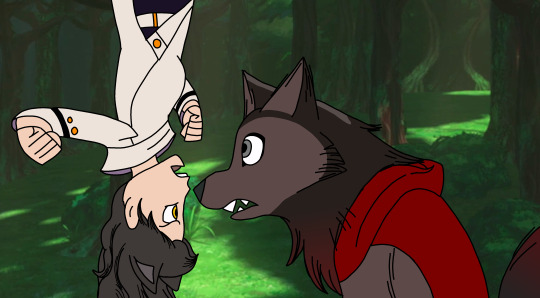
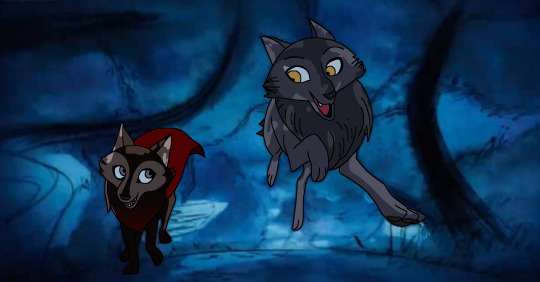

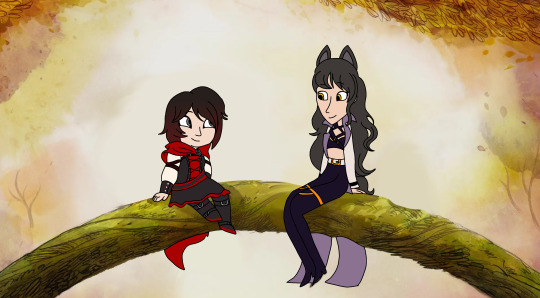

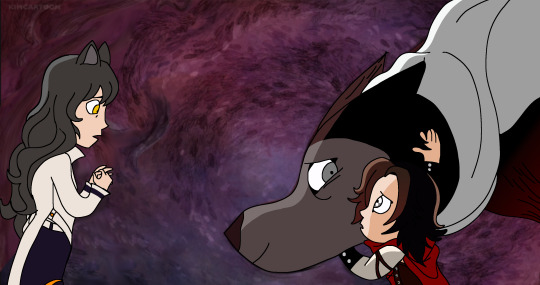

RWBY Ladybug week day 8: AU Day (very late entry, ik)
I revisted my old Ladybug Wolfwalkers AU for this, both creating new art and redoing my old edits from 2021 (I just changed Ruby and Blake's outfits from their Atlas ones to their Mistral ones instead cuz I think it fits the vibe better)
#btw yes jacques is lord protector in this au#blake and ghira are still feline faunus but they turn into wolves#just say they're indian grey wolves to go with ghira's jungle book inspiration#ladybugweek2023#my art#rwby#rwby ladybug#ladybug rwby#ladybug#wolfwalkers#cartoon saloon#my edit#greenlight rwby volume 10#greenlight volume 10#greenlightvolume10
76 notes
·
View notes
Text
i officially identify as Dr. Doofenshmirtz. i like to think of myself as an evil mastermind but i'm at most a minor inconvenience
#people don't take my evil plans seriously#all those schemes turn around to be an inconvenience#and i have to clean up afterwards#the only thing missing is a platypus as a nemesis#and a seriously cool lair#phineas and ferb#dr doofenshmirtz#shitposting#desi tumblr#desiblr#shitpost#desi shit posting#random#desi thoughts#indian tumblr#txt post#txt#cartoon#evil#minor inconvenience
53 notes
·
View notes
Text
Why the real villain of Chhota Bheem was King Indravarma: A meta-analysis of who he really was.
Alternative Title: An episode where I go nuts and have zero backing behind my essay.
(A note to the readers: This essay does not take into account the existence of the Mighty Little Bheem show. The matter at discussion is purely based on the Chhota Bheem show only.)
Most Indian Children born in the late 2000s can easily recognize the musical ensemble of the theme song of Pogo’s crowned jewel: Chhota Bheem. Eyes were glued to the television and clock ticks were memorised for when the show would start because Chhota Bheem to them was not just an animated show; it was an expression, a memory, a piece of childhood, if you will.
And yet, while watching the show through an “adult” lens, Chhota Bheem leaves a bitter taste in the mouth.
Why?
The answer, I personally believe, is of two aspects. One would be the obvious irritation in how King Indravarma ruled the land, and the other is about how Chhota Bheem was a Mary-Sue and how the show perhaps needed to be styled around Kalia, his imperfections and his character arc. (But that’s for another time.)
Let’s focus on the topic at hand: King Indravarma. He was, bluntly put, a stupid King.
Imagine a King as such in the real world. A King who had no strong Military, who constantly relied on a 10-year-old for any trivial matter whether it was an external threat to the kingdom instead of sending out an army, did not invest in new technology for the betterment of his people and used it for personal gain. The list can go on and on.
The argument presented here is that King Indravarma as a villain is not a bad evil person but rather how his aloofness was the one reason his kingdom suffered. Being a “villain” does not always necessitate violence and crude language; all it requires is to bring harm to others. And King Indravarma, indirectly, does that.
----------------
“Stupidity is a more dangerous enemy of the good than malice.
Dietrich Bonhoeffer
----------------
On the other hand, we can theorize that King Indravarma was merely “acting” to be stupid and always had ulterior motives behind his every move. This argument is also proven along the way when I dissect his character in this essay.
In fact, this essay reaches a conclusion that King Indravarma was a strategist who was…. stupid. A perfect balance. (But not for Dholakpur.)
--
I.Outsmarting a kid; getting outsmarted by the world.
When scouring through the deep dark pages of the internet, one question plagued me: How did Chhota Bheem get his powers?
Yes, it’s common knowledge that eating a Laddoo gives him super-human strength but how does he get such a power in the first place? Alas, that’s not an answer that the cartoon canon can answer but it is integral to the next question that follows: How did King Indravarma realize Chhota Bheem had such powers? Maybe he never found out because had he, he definitely would’ve chosen to make all his citizens the perfect citizens. (A strategist, remember?)
It’s natural for any parent to desire the safe protection of their child from the dangers of the world. As seen in Spider-Man, Aunt May chooses to protect the identity of Peter as his alter-ego and would go to any extent for his safe keeping. But why didn’t Bheem’s mother do the same? Why didn’t she hide the powers of Bheem?
Or maybe, she did.
She did try to hide it but somehow it reached the ears of King Indravarma. And King Indravarma strategicallydecided to use it to his advantage.
And I say strategic because, by all rights, Bheem deserved official employment. He worked as a protector of the kingdom more than the soldiers ever did. He could’ve been a member of the royal guards, or a leader of it too. But instead, the king always played along with the HA-HA Bheem- is- just- a- loyal- citizen- who -helps- sometimes card and gave him no remuneration.
This could’ve had two motives: An economic perspective where he didn’t have to pay Bheem for his services and/or a jealous King perspective where he wanted to avoid a 1789 France Bastille-Storming situation. Empowering Bheem and giving him more administrative power on top of the physical power he already had would make him a dangerous weapon. He was already charismatic and loved by the villagers; it would only be a matter of time until they felt that Bheem would be a better leader than the King himself.
The king further added on to this plan by employing some of the most useless soldiers in his army ever therefore making it seem that the King did try to save his kingdom, but it was to no avail. And at some point, he stopped using the soldiers (probably dismissed them, thus saving even more money for his personal gain) and purely relied on Bheem, a kid who he didn’t even have to pay! (And Bheem, being a “kid” did not have the sense of asking for remuneration as well.)[1]
Smart, isn’t he? (King Indravarma, I mean.)
But also, stupid.
By following this method, he made sure that the one key asset that Dholakpur had was revealed to the entire world. He placed the country in danger from threats all the time! (And I truly mean one asset because by its looks Dholakpur had nothing else to offer. The crops often struggled due to pests, the landscape was unappealing to the eyes, it had no tourist’s income etc.) It’s truly surprising how Dholakpur was not already overtaken by some other colonizer or king because all they had to worry about was defeating one kid. Just one kid. (Yes, he’s strong and what not, but Bheem’s got to have some limit?)
-
II. Economic drain for… what exactly?
----------------
“Th’ abuse of greatness is when it disjoins remorse from power.”
Brutus in Julius Caesar (2.1.19-20)
----------------
In one episode of Chhota Bheem, King Indravarma had no qualms or shame in announcing that the kingdom had no new bicycles for a bicycle race when the neighbouring kingdom had brand new, shiny bicycles and therefore, Bheem and his friends had to manage with the old bicycles. Either the kingdom was not financially stable to accommodate the purchase of such bicycles, or the king lied that the kingdom had no money.
Let’s explore both the views, shall we?
The kingdom being too “broke” to purchase bicycles implies how financially unsecure it is! Perhaps the kingdom was knee-deep in debts or just refused to spend whatever reserves it had on importing foreign goods. Maybe the kingdom had an import substitution policy (similar to what the post-British India followed) but was not able to implement it seeing how the kingdom had an agrarian economy.
Which brings us to the question: How is an economy expected to grow without any investment in additional technology?
The only source of revenue that was noticed were from the fairs conducted, the crops reaped and Tun-Tun Mossi’s Laddoo sale. And as anyone with two eyes can note: It is not enough. The policies followed by King Indravarma were dangerous to Dholakpur in the short-run and long-run. Inflation was just a door’s knock away for the citizens of Dholakpur! People would’ve been forced to lead even more horrendous lives and forced to spend a bucketful of cash but a pocketful of things! (Again, how the kingdom survived is such a mystery.)
On the other hand, maybe the King just wanted to hold all the gold reserves to himself and did not wish to splurge on any investment in technology for the kingdom. Which again proves how he is a stupid strategist because if he wanted more money, the country needs development. More jobs, more employment brings about higher level of income, GDP and better lifestyle. How are the people supposed to pay taxes to the King if he doesn’t provide them enough opportunity to make money for paying the taxes? It would’ve been more understandable if he invested in their advancement first and then participated in red-tapism and what not.
(Idiot.)
The King, in my opinion, is begging for a Marie Antoinette situation by running around in gold chains and necklaces while his people slog and suffer.
-
III. Diplomacy at its finest. Not.
----------------
To say nothing, especially when speaking, is half the art of diplomacy.
-Will Durant
----------------
The third, and final facet of why King Indravarma was the real villain is perhaps the shortest and the simplest. [2]
There’s no doubt why Dholakpur was often plagued with terrorists and external threats and challenges from other kingdoms than the neighbouring countries: King Indravarma’s tongue.
Instead of rallying allies and forming alliances with other countries, the king often chose to goad other rulers into competitions of which-kingdom-is-better game which is humorous to think because Dholakpur had no additional advantage except …Bheem. The entire fragile ego of Indravarma’s was built on nothing but a nine-year old boy!
The demise of the King’s pride would be swift and sweet the day Bheem decides to move out of the godforsaken kingdom.
Conclusion
“It is unwise to let a man who isn't king sit on a throne for too long.”
― Costanza Casati, Clytemnestra
Thus, I bring this essay to its end. A hyper-fixation of my childhood has now become a piece of media that will forever make me think of this 1600+ word essay that brings no added meaning to this world.
To you, Bheem, I wish that you escape from the clutches of Indravarma’s stupid reign. Perhaps if the King was just evil I could’ve respected him more. Alas, stupidity is a turn-off.
To you, Dholakpur, I wish that you understand that it’s better to have no king than have Indravarma as a king. Rise and revolt, fellow comrades. History would look kindly upon you.
And to you, King Indravarma, thank you for spoiling my favourite cartoon.
Aisling Elle
16.04.2024
[1] A further note to be added is that the king was a frequent enabler of Child Manipulation because he always made it seem that Bheem voluntarily decided to choose to fight for the kingdom and was not requested by the King.
[2] This argument is in reference to the cycle competition that the King engages in with Pehelwanpur.
Part 1 of Random Essays
#AislingWrites#My work#english#writing#writeblr#writers on tumblr#writerscommunity#writers and poets#creative writing#writers#amwriting#writing community#random essays#desi#indian#bharat#desiblr#desi tumblr#desi tag#desi aesthetic#desi blog#cartoon#chhota bheem#analysis#chilldhood#villain#hero
25 notes
·
View notes
Text
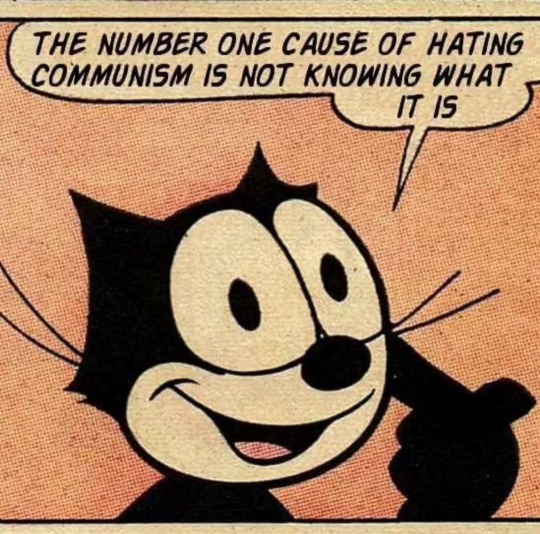
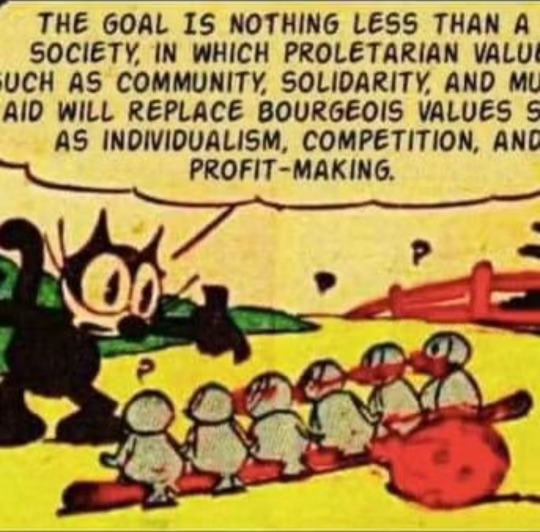

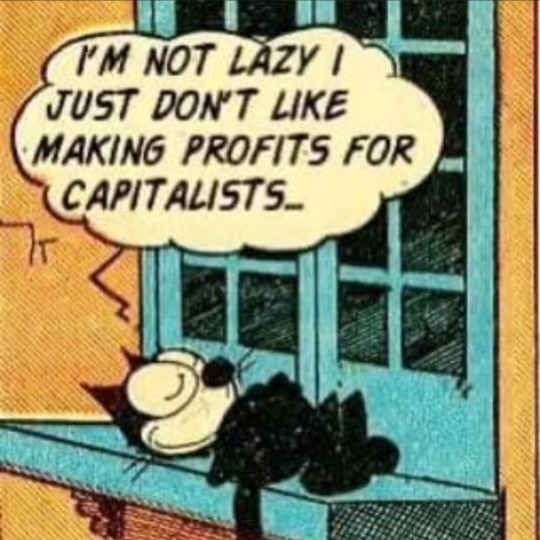
#communism#late stage capitalism#capitalism#lazy#felix#cat cartoon#cats#anti imperialism#revolution#liberation#indigenous#decolonize#indian time#rez life#ndn#n8v#native american
90 notes
·
View notes
Text
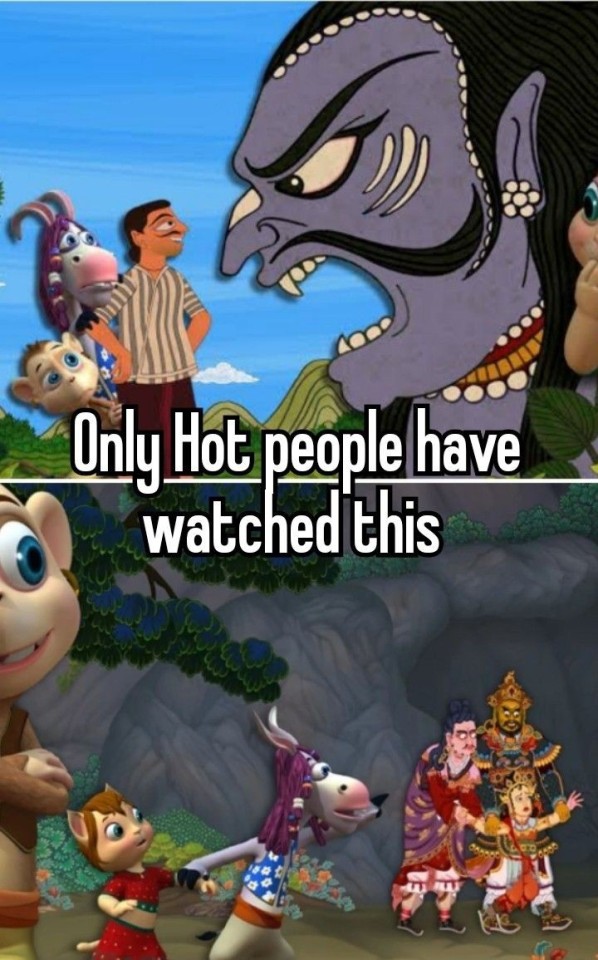
#only legends know this show#krish Trish and baltiboy#cartoon network#desi shit posting#desi teen#desi tumblr#just desi things#indian memes#being desi#desi#desi people#desi tag#desi aesthetic#desiblr#desi household#desi humor
94 notes
·
View notes
Text

What is under Uncle Sam's hat?









#What is under Uncle Sam's hat?#uncle sam#comic#comics#cartoons#cartoon#memes#meme#ausgov#politas#auspol#tasgov#taspol#australia#fuck neoliberals#neoliberal capitalism#anthony albanese#albanese government#usa is a terrorist state#usa news#usa politics#usa#american indian#american#america#genocide joe#joe biden#anti joe biden#anti donald trump#donald trump
48 notes
·
View notes